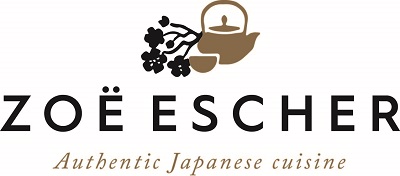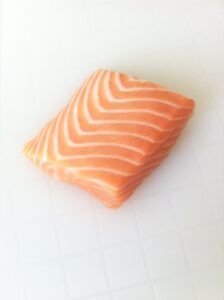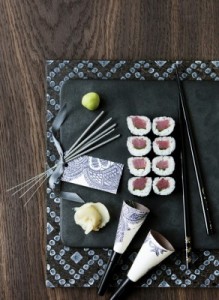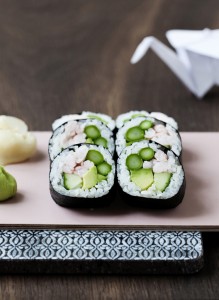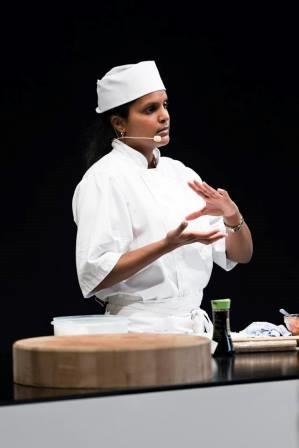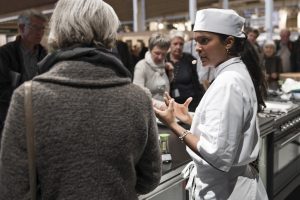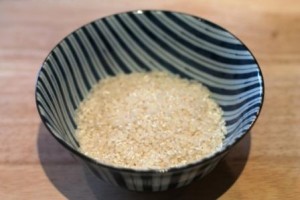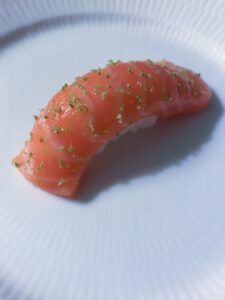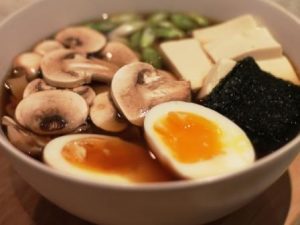The sushi course uses the best salmon in the world, which comes from the Faroe Islands.
I have the opportunity to buy Faroese salmon that has been raised under the best conditions. I have chosen it as one of the ingredients for the course.
I do this for two reasons.
- When I make sushi, whether for others or at home, I use the best ingredients I can get. It simply results in the best flavor.
- My participants deserve the best. They gain a greater understanding of how much the quality of the ingredients impacts the taste of the sushi. It is also my guarantee that none of the attendees will get sick.
The Sushi course for beginners is a wonderful course because you will learn about ingredients, how to cook rice, cutting techniques, Japanese ingredients, buying fish, and the methods used behind delicious sushi.
After completing the course, you will be ready to make delicate and tasty sushi in your own kitchen.
Read more about the cooking class Sushi for beginners
_
Zoë has held sushi courses and cooking classes for A. P. Moller – Maersk, Hugo Boss Nordic, Novo Nordisk, Novartis, Velux, Gorrissen Federspiel, Beierholm revision, Elbek & Vejrup and many more.
